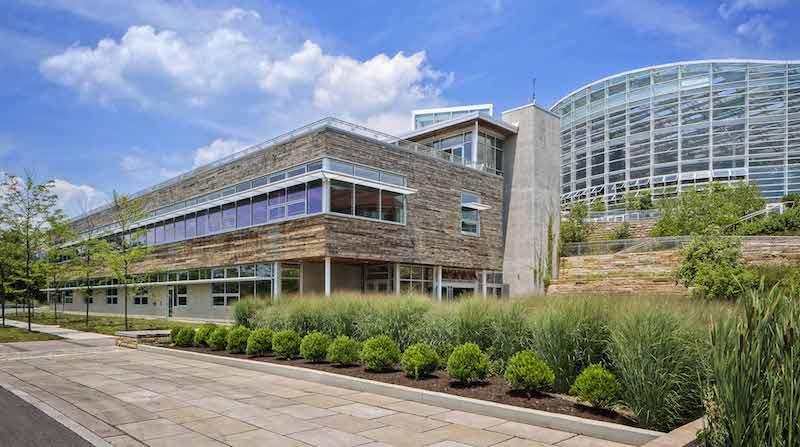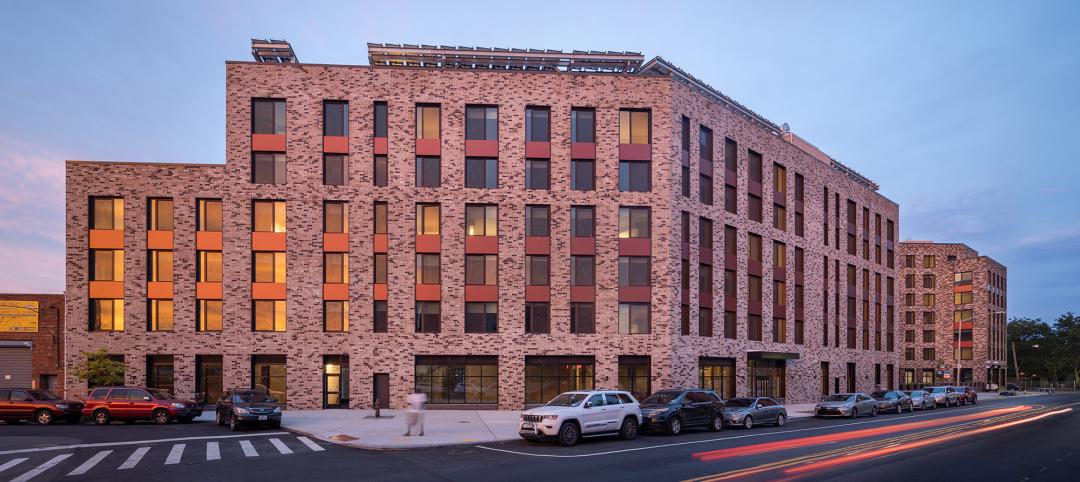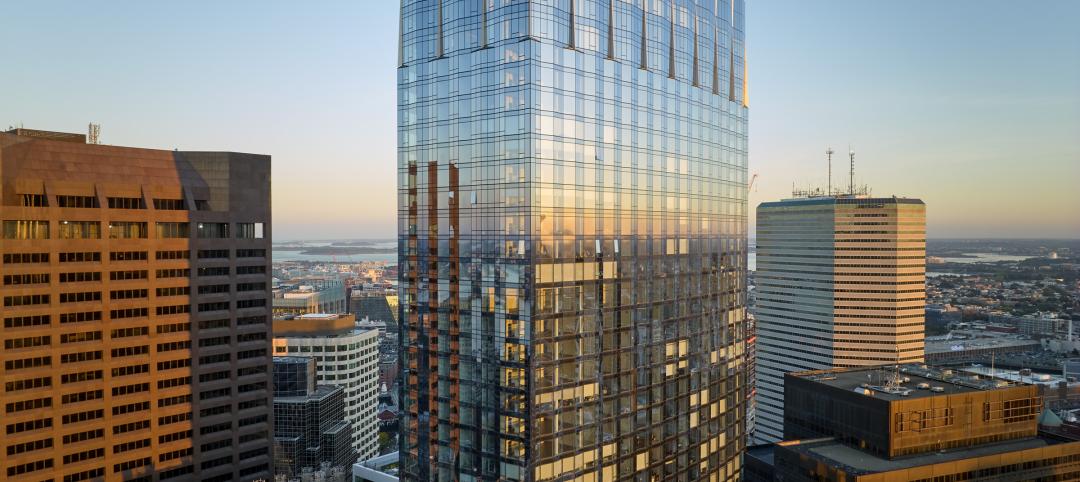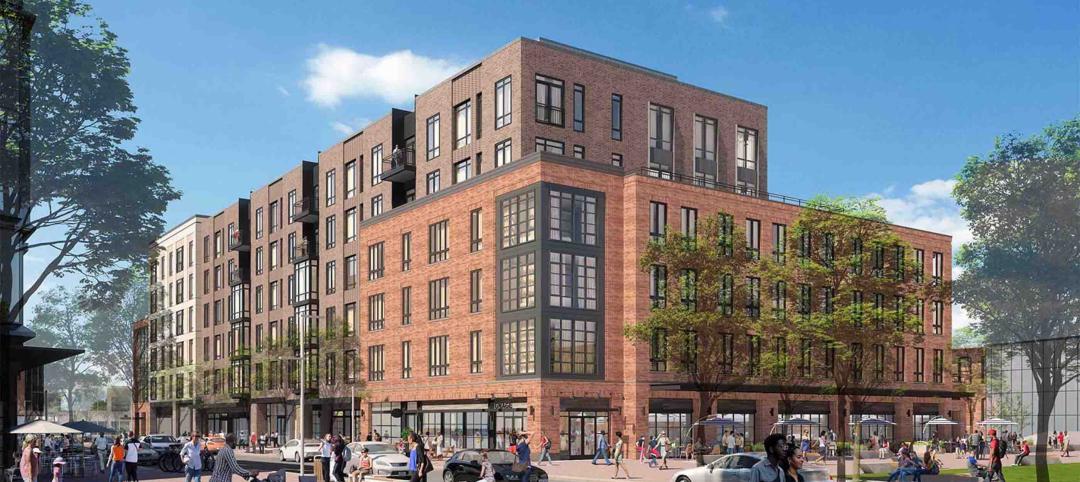The Center for Sustainable Landscapes (CSL) at the Phipps Conservatory and Botanical Gardens in Pittsburgh, Pa., has recently become the first certified Sustainable SITES Initiative v2 Platinum project in the world. The building originally opened in 2012 and was the first and only project to receive SITES 2009 Pilot Four Star certification.
The CSL was built over a previously documented brownfield with the goal of restoring the site. Since 2012, the project has successfully reintroduced 100 native plant species to the surrounding area. The building is net-zero energy and net-zero water thanks to its PV solar panels, a wind turbine, and a system for capturing and treating all water onsite for reuse.
See Also: First photos inside the nearly completed Jewel Changi Airport addition
The new SITES v2 Rating System builds off the 2009 pilot certification. SITES certified projects are better equipped to withstand catastrophic events like floods, droughts, and wildfires. They reduce water and energy demand, improve air quality, and promote human well-being.
SITES is owned and administered by Green Business Certification Inc. Certification is based on a point system: the number of points a project earns determines the certification level it receives (SItes Certified: 70-84 points, SITES Silver: 85-99 points, SITES Gold: 100-134 points, SITES Platinum: 135+ points).
Related Stories
Concrete | Jan 12, 2024
Sustainable concrete reduces carbon emissions by at least 30%
Designed by Holcim, a building materials supplier, ECOPact offers a sustainable concrete alternative that not only meets, but exceeds the properties of standard concrete.
Sustainability | Jan 10, 2024
New passive house partnership allows lower cost financing for developers
The new partnership between PACE Equity and Phius allows commercial passive house projects to be automatically eligible for CIRRUS Low Carbon financing.
Green | Jan 8, 2024
DOE releases RFI on developing national definition for a Zero Emissions Building
The Department of Energy released a Request for Information (RFI) for feedback from industry, academia, research laboratories, government agencies, and other stakeholders on a draft national definition for a Zero Emissions Building.
Sustainability | Jan 2, 2024
Los Angeles has plan to improve stormwater capture and source 80% of water locally
Los Angeles County’s Board of Supervisors voted for a plan to improve stormwater capture with a goal of capturing it for local reuse. The plan aims to increase the local water supply by 580,000 acre-feet per year by 2045.
Sustainability | Dec 22, 2023
WSP unveils scenario-planning online game
WSP has released a scenario-planning online game to help organizations achieve sustainable development goals while expanding awareness about climate change.
Codes and Standards | Dec 18, 2023
ASHRAE releases guide on grid interactivity in the decarbonization process
A guide focusing on the critical role of grid interactivity in building decarbonization was recently published by ASHRAE. The Grid-Interactive Buildings for Decarbonization: Design and Operation Resource Guide provides information on maximizing carbon reduction through buildings’ interaction with the electric power grid.
Sustainable Design and Construction | Dec 14, 2023
Suffolk Construction establishes Suffolk Sustainability Group
Design veterans Steven Burke and Michael Swenson will lead the new sustainability initiative for Suffolk.
75 Top Building Products | Dec 13, 2023
75 top building products for 2023
From a bladeless rooftop wind energy system, to a troffer light fixture with built-in continuous visible light disinfection, innovation is plentiful in Building Design+Construction's annual 75 Top Products report.
Sustainability | Nov 20, 2023
8 strategies for multifamily passive house design projects
Stantec's Brett Lambert, Principal of Architecture and Passive House Certified Consultant, uses the Northland Newton Development project to guide designers with eight tips for designing multifamily passive house projects.
Sustainability | Nov 1, 2023
Researchers create building air leakage detection system using a camera in real time
Researchers at the U.S. Department of Energy’s Oak Ridge National Laboratory have developed a system that uses a camera to detect air leakage from buildings in real time.

















